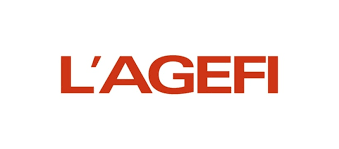Doctoral student at the University of Paris-Nanterre and the Climate Economics Chair, Anouk Faure‘s work focuses on the European carbon market (EU ETS), at the intersection of environmental economics, natural resources and industrial organization. As part of her work with the Climate Economics Chair, she is also working on the French carbon tax.

English translation-
Welcome to AGEFI TV. Should we tax fuels at the moment with “the yellow vests” movement? We ask the question to Anouk Faure.
L’AGEFI: You are a PhD student at the Paris Dauphine Climate Economics Chair and you just published a note with Christian de Perthuis on the taxation of fuels in the context of the 2019 PLF. My first question: could you remind us us in a few words what does fuel taxation mean today?
Anouk Faure: Today, the contribution climate-energy is a contribution that is prorated carbon content in fossil fuels. We will apply a monetary contribution in order to be able to reflect the negative environmental externalities.
L’AGEFI: The damage?
Anouk Faure: Indeed environmental damage when burning fossil fuels that are not reflected in the market price. This, in order to give the incentive to the consumer of fossil fuels to turn to more carbon-free energies.
L’AGEFI: The famous dissuasive use of taxation? In your note you recall two, three elements of this logic of green taxation. You say that it made its appearance in 2017, under the impetus of Nicolas Hulot. In short, what is the logic of this tax?
Anouk Faure: It was put in place in 2014 but it went unnoticed because the price of a barrel of oil had fallen sharply. But simply, in recent months, the price of a barrel of oil has risen sharply so we suddenly discover that there is a carbon tax and it increases. This logic therefore consists in the long term of having a visibility on the increase of the carbon price to fight against the pollution and the global warming. And so ultimately it would encourage investment in carbon-free energy by ensuring that the relative cost of carbon-free energy will be lower than that of fossil fuels.
L’AGEFI: Basically, you’re telling us that this perspective is that we started to tax fuels and that it will not stop tomorrow morning?
Anouk Faure: It will not stop tomorrow morning and besides the objective of this contribution energy climate is to reach 86.2 euros per ton of CO2 in 2022.
L’AGEFI:The social aspect obviously is important, you mention in your report these accompanying measures. And there you say “it’s not enough”.
Anouk Faure: Yes exactly. This carbon tax is inherently anti-redistributive because it is the households that are the most modest that will allocate a larger share of their income to spending on energy (heating) or mobility, as we see at the moment with the yellow vests movement. In the short term, these modest households will have to face this increase of fossil fuels and will not necessarily have the means to face them. So for the moment, we have an energy check that supports the poorest households in the payment of their energy bill but in its current form, this check does not help to provide mobility assistance. We saw last week that Edouard Philippe wants to try to extend this energy check to the first two deciles of the population. This is already a step forward but we would be in favor of saying that we should go further and give a lump sum payment to allow households to have some sort of free will on their expenses and not just arrow this energy check on heating expenses.
L’AGEFI: Hence the reaction of some specialists who say that with these accompanying measures we are reinventing the subsidization of fossil fuels, which has been denounced for decades by all international organizations. Because that’s what keeps up the misuse of fossil fuels.
Anouk Faure: Yes it is the risk with these accompanying measures that are really arrows on certain uses, not to finally give an incentive to leave fossils and to turn to other types of energies. While with a payment that would be lump sum, we could at the same time accompany the most modest households to turn around without giving them the opportunity to stay in their current form of heating.
